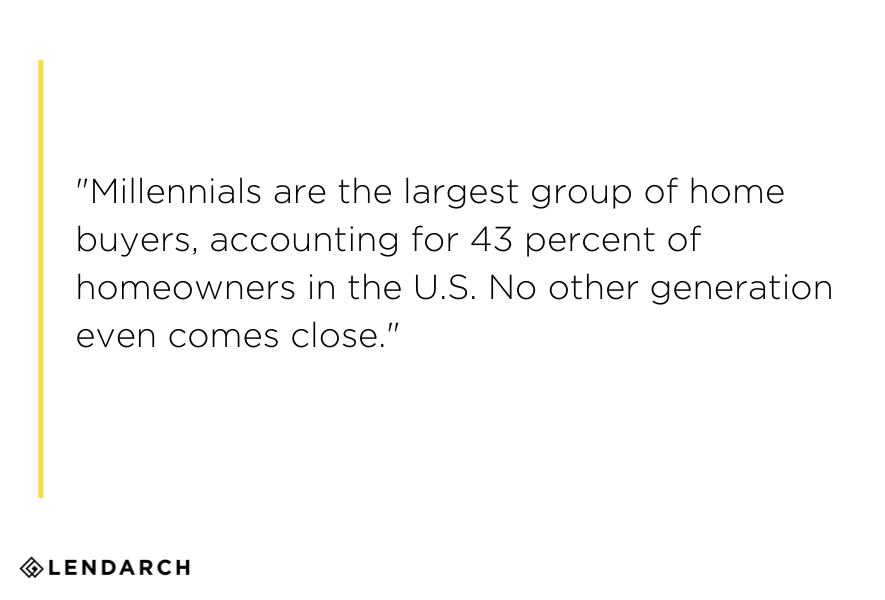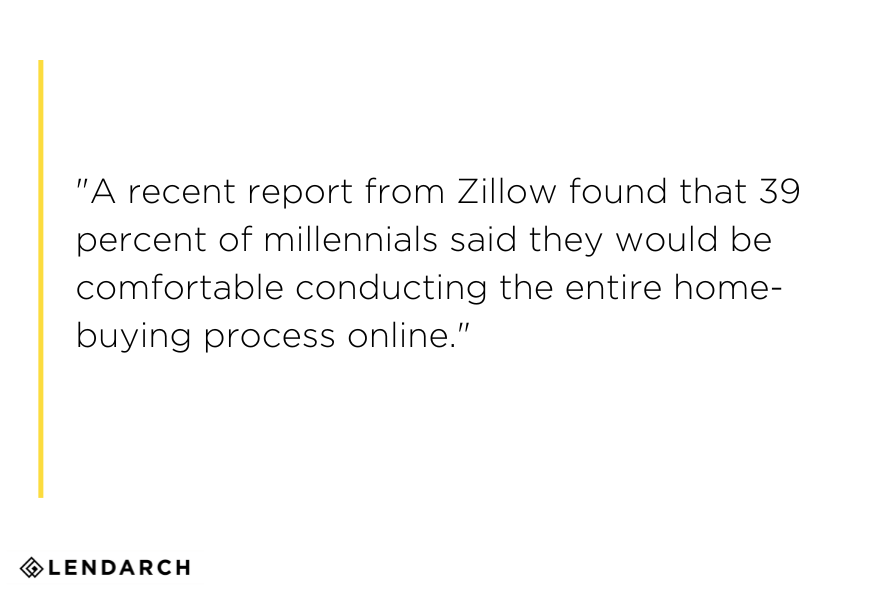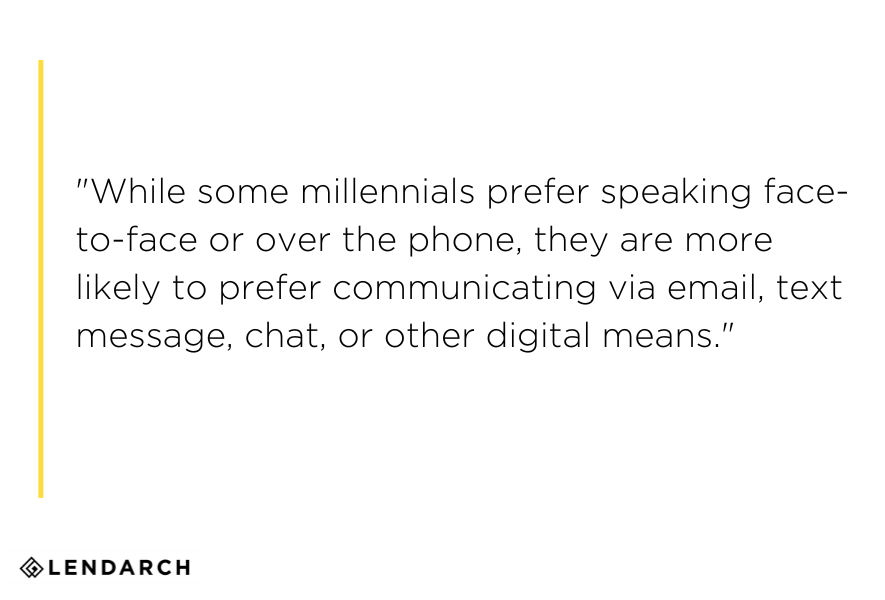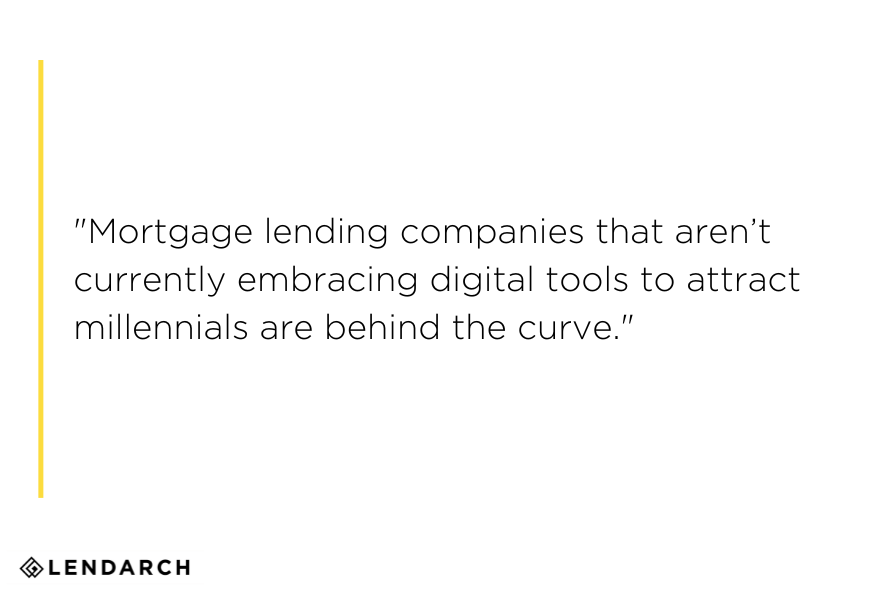Millennials are considered to be people born in the 1980s and 1990s. According to census data, they have overtaken baby boomers as the most populous generation, surpassing them by at least 1 million.
In addition to outnumbering previous generations in number, millennials are the largest group of home buyers, accounting for 43 percent of homeowners in the U.S. No other generation even comes close. The remaining 57 percent of home buyers is divided between four generations: the silent generation, baby boomers, Gen X, and Gen Z.
 So, when considering ways to improve the homebuying process, it makes sense to consider what the largest group of home buyers wants. After all, the oldest millennials are only in their early 40s. Thus, this generation will represent a significant share of home buyers for the next several decades.
So, when considering ways to improve the homebuying process, it makes sense to consider what the largest group of home buyers wants. After all, the oldest millennials are only in their early 40s. Thus, this generation will represent a significant share of home buyers for the next several decades.
What Do Millennials Expect From the Homebuying Process?
This question is worth asking for everyone involved in the home buying and selling process, including mortgage lenders.
Here are a few things millennials expect as they buy a home, whether they are first-time homeowners or seasoned veterans.
1. Easy access to education
According to the 2021 ServiceLink State of Homebuying Report, millennials and Gen Z reported having the most confidence before buying a home. This is because they are savvy digital researchers who are adept at using digital tools to look up information about home buying. They can search for everything from available listings in their desired area and price range to learning how to apply for a mortgage, improve their credit score, and get approved for a loan.

Millennials expect it to be easy to learn about processes they don’t understand by doing a simple search. Mortgage lenders can lean into this expectation by providing easily accessible educational tools to help millennial home buyers learn everything they need to know about getting a mortgage.
2. Digital tools
A recent report from Zillow found that 39 percent of millennials said they would be comfortable conducting the entire home-buying process online. A significantly higher percentage (68 percent) felt comfortable unlocking a home using their phone and taking a tour on their own time.

Other digital tools that millennials want to use throughout the home-buying process include:
- 3D virtual tour
- Virtual floor plan
- Email notifications
- Video tour with an agent
There are likely other digital tools that most millennials would be open to use when buying a home as long as those tools provide convenience and flexibility.
3. A hybrid approach
As a generation that grew up in an analog world before transitioning to a fully digital space, millennials tend to prefer a blend of in-person customization and technological convenience. They want the freedom and flexibility to conduct research on their terms, which is why 78 percent of older millennials report finding their home on an app.
However, many millennials also want to work with an expert if it will help them buy a home faster. When they have questions that an internet search can’t solve, they expect to be able to speak with a professional who can offer more personalized guidance.

Thus, mortgage lenders must offer both digital and human resources for different stages of the mortgage lending process.
How Lenders Can Strengthen Their Appeal to Millennial Homebuyers in 2022
While millennials are the largest generation in population size and home ownership, they present some complex challenges.
For one thing, many millennials are burdened with student debt. Many also went through a recession during their early career years, leaving them financially behind compared to their older counterparts. So, many millennials are getting started later in the process than members of previous generations.

In addition, many millennials are putting off major milestones, such as getting married or having children. Thus, they may be older than previous generations were when they first began looking to buy a home.
Recognizing that millennials are approaching home ownership differently than Gen X and baby boomers can help mortgage lenders cater to this large demographic in a few ways.
1. Electronic communication
While some millennials prefer speaking face-to-face or over the phone, they are more likely to prefer communicating via email, text message, chat, or other digital means.

This can be for several reasons. The first is that millennials don’t like talking on the phone. They prefer to communicate through written communication instead of verbal.
Another reason to prefer digital communication is that it is more convenient. Millennials are used to researching on their own time. They may find it easier to send an email to a mortgage lender at 11:00 on a Tuesday night than to try to coordinate a phone call during the workday.
2. Convenience first
Millennials are busy. They are in the throes of balancing their career with parenthood, and many are also caring for their aging parents. As a generation, they don’t want to waste time unnecessarily. Thus, they expect a convenient mortgage lending process that allows them to view rates, submit an application, and view its status without needing to schedule several meetings or go to a financial institution in person.

Mortgage lenders, therefore, need to prioritize convenience when creating a mobile app and desktop experiences that make it as easy as possible for millennial home buyers to find the information they need.
3. Representatives when they need them
Embracing mortgage automation and technology doesn’t have to mean completely eliminating people from the mortgage lending process. Millennials want access to experienced lenders who can answer their complex questions when they come up.
Ready to Lend to Millennials? Get the Right Technology First
Mortgage lending companies that aren’t currently embracing digital tools to attract millennials are behind the curve. It is more important than ever to use technology to attract and retain millennial home buyers who will likely continue to dominate the mortgage market for the foreseeable future.
Reach out to the LendArch experts to learn more about the tech tools available to help improve the lending experience for millennials.
As Chief Executive Officer, Tammy Richards brings over 35 years experience in Mortgage Banking, EClose/EMortgage, Robotics/AI/OCR/ICR implementation and more. She has been an executive and has led Nationally at Bank of America, Caliber Home Loans and most recently served as Chief Operating Officer for Loan Depot. She is passionate about and is an expert in the mortgage industry's ongoing tech transformation.









